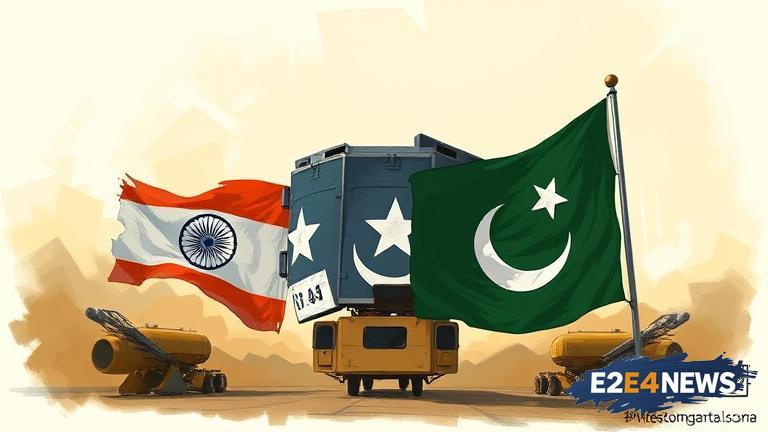In a recent statement, Pakistan’s Prime Minister, Shehbaz Sharif, announced that the country’s nuclear program is solely for defense against India. This statement marks a significant shift in Pakistan’s stance on its nuclear policy. The change in tone comes after India conducted strikes in the region, which Pakistan perceived as a threat to its national security. The Prime Minister’s statement is seen as an attempt to reassure the international community that Pakistan’s nuclear capabilities are not a threat to global peace. However, the statement has raised concerns among experts, who believe that Pakistan’s nuclear program is not solely for defensive purposes. The country has a history of using its nuclear capabilities as a deterrent against India, and the recent statement may be seen as a tactic to ease international pressure. The Indian strikes that prompted Pakistan’s change in stance were reportedly carried out in response to militant activity in the region. Pakistan has long been accused of harboring militant groups, which has led to tensions with India. The situation in the region remains volatile, with both countries engaging in a war of words over the issue. The international community is watching the situation closely, with many calling for restraint and diplomacy to resolve the issue. The United States, in particular, has expressed concerns over the situation, urging both countries to engage in dialogue. The European Union has also weighed in, calling for a peaceful resolution to the conflict. Despite the concerns, Pakistan’s Prime Minister remains adamant that the country’s nuclear program is solely for defense. The statement has sparked a debate among experts, with some arguing that Pakistan’s nuclear program is a necessary deterrent against India, while others believe that it is a threat to regional and global stability. The situation in the region is complex, with multiple factors at play, including historical tensions, militant activity, and geopolitical rivalries. As the situation continues to unfold, it remains to be seen how the international community will respond to Pakistan’s changed stance on its nuclear policy. The country’s relations with India and other nations in the region are likely to be affected by the statement, and it may lead to a re-evaluation of Pakistan’s role in regional and global affairs. Furthermore, the statement may have implications for the global non-proliferation regime, as it may be seen as a challenge to international norms and agreements. In conclusion, Pakistan’s changed stance on its nuclear policy is a significant development that has far-reaching implications for the region and the world.
